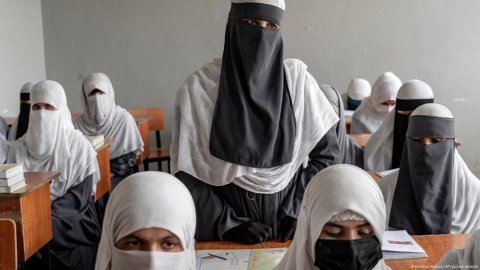Germany Ensures Asylum for Afghan Women and Girls
In recent times, Germany has taken significant steps to provide asylum to Afghan women and girls, particularly in the wake of the Taliban’s resurgence in Afghanistan. This commitment is not just a humanitarian gesture but also a critical move towards safeguarding the rights and futures of those who are vulnerable in their home country. This article delves into the implications of this decision and the broader context of immigration policies in Germany.
The Context of Asylum in Germany
Germany has long been a destination for asylum seekers, with its policies reflecting a commitment to human rights and protection for those fleeing persecution. Following the Taliban’s takeover of Afghanistan, the situation for women and girls has deteriorated drastically. With the imposition of strict interpretations of Sharia law, many are at risk of violence, forced marriages, and lack of access to education and healthcare.
The German government has recognized the urgent need to respond to this crisis. By ensuring that Afghan women and girls are almost guaranteed asylum, Germany is sending a powerful message about its commitment to human rights.
Key Policies and Frameworks Supporting Asylum Seekers
Germany’s approach to asylum for Afghan women and girls is part of a larger framework of immigration policies aimed at protecting vulnerable populations. Some key aspects include:
These measures are not only aimed at ensuring safety but also at facilitating the integration of new arrivals into German society.
The Role of Immigration Agencies and Organizations
Various immigration agencies and organizations play a crucial role in supporting Afghan women and girls seeking asylum in Germany. They provide essential resources and information about the asylum process, helping applicants navigate the complexities of immigration policies.
For instance, organizations like the Citizen Service Bureau and local NGOs offer guidance on asylum applications, legal rights, and available support systems. Furthermore, the USCIS office locator can assist individuals in finding relevant offices when seeking information on asylum procedures.
The collaboration between governmental bodies and non-profit organizations ensures that Afghan women and girls receive comprehensive support during their transition to safety.
Challenges and Considerations Ahead
While Germany’s commitment to providing asylum is commendable, challenges remain. The sheer number of individuals seeking refuge can strain resources and services. Additionally, the ongoing political climate surrounding immigration in Europe may influence future policies.
It is crucial for Germany to remain steadfast in its commitment to human rights and to address any emerging challenges in a manner that continues to protect vulnerable populations. The current immigration cases highlight the ongoing need for reform and adaptability in the asylum system.
The Impact of Immigration Reform
As discussions around immigration reform continue, the focus on humanitarian cases, such as those of Afghan women and girls, is paramount. The immigration news in Colorado and other states reflect a growing awareness of the need for comprehensive policies that prioritize safety and human rights.
By analyzing successful asylum programs and adapting them to meet the needs of Afghan women and girls, Germany can set a precedent for other nations to follow. Initiatives like the Humanitarian Parole and specific visa programs exemplify proactive measures that can be replicated elsewhere.
Conclusion
Germany’s decision to ensure asylum for Afghan women and girls is a significant step towards addressing the humanitarian crisis resulting from the Taliban’s rule. By implementing supportive immigration policies and fostering collaboration between governmental and non-governmental organizations, Germany not only protects the most vulnerable but also reinforces its position as a leader in human rights advocacy.
As the global landscape continues to evolve, it is imperative for countries to remain committed to protecting those in need. The case of Afghan women and girls serves as a reminder of our shared responsibility to uphold human dignity and support those who are most at risk.










